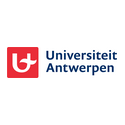In short
A mycotoxin is a toxic substance produced by fungi (yeasts and moulds) which is capable of causing disease and death in both humans and animals. Mycotoxins therefore also cause decreased production of eggs, milk and meat. Aflatoxins are one of the important mycotoxins which are also amongst the most potent carcinogens known so far. In this project we evaluated extracts of South African plants as detoxifying agents against the mutagenic (DNA alterating) and hence possibly carcinogenic effects of mycotoxins.
Project description
The major objective of this project was to identify bioactive South African plants and isolate bioactive compounds thereof that are capable of detoxifying the mutagenic effects of aflatoxins and other mycotoxins. Identification of such compounds is especially important as their application as a food and feed additive will lower the adverse effects of mycotoxins that occur naturally in several animal feeds and have been known as prominent causes of animal diseases. As a result, animal health will improve and it may be assumed that production of eggs, milk and meat will increase. This will also reduce human exposure to mycotoxins resulting from the possible transfer into edible tissue of farmed animals. This project will therefore have a considerable impact and be directly applicable to animal husbandry and veterinary sciences. Its impact on farming may be substantial.
Read more about the Z. Afrika project
This study thus aimed at identifying a few promising extracts/fractions/isolated compounds with the desired properties, i.e., no mutagenic or co-mutagenic properties, high antimutagenicity and low toxicity. Methanol and dichloromethane extracts were therefore tested for their genotoxic and antigenotoxic (antimutagenic/mutagenic) effects. This was done using bacterial (Ames and Vitotox test) as well as mammalian/human cell systems (comet assay, micronucleus test). Antigenotoxicity was especially investigated against aflatoxin B1. Promising extracts were fractionated and fractions tested again to identify the most promising antimutagens. One or two of the identified compounds were also tested in vivo so as to confirm their applicability as food or feed additives and chemo-preventive measure against the genotoxic effects of mycotoxins, particularly aflatoxins.
Added value at scientific level
Although there have been investigations in the past on, e.g., mutagenic and antimutagenic properties of South African medicinal plants or other natural products, there have been no investigations aiming at this particular application. The developed approach was thus new within the research domain.
Added value for public health
In addition to its direct effect on animal health, the project could also indirectly impact human health by reducing the exposure to mycotoxins.
Sciensano's project investigator(s):
Service(s) working on this project
Partners



